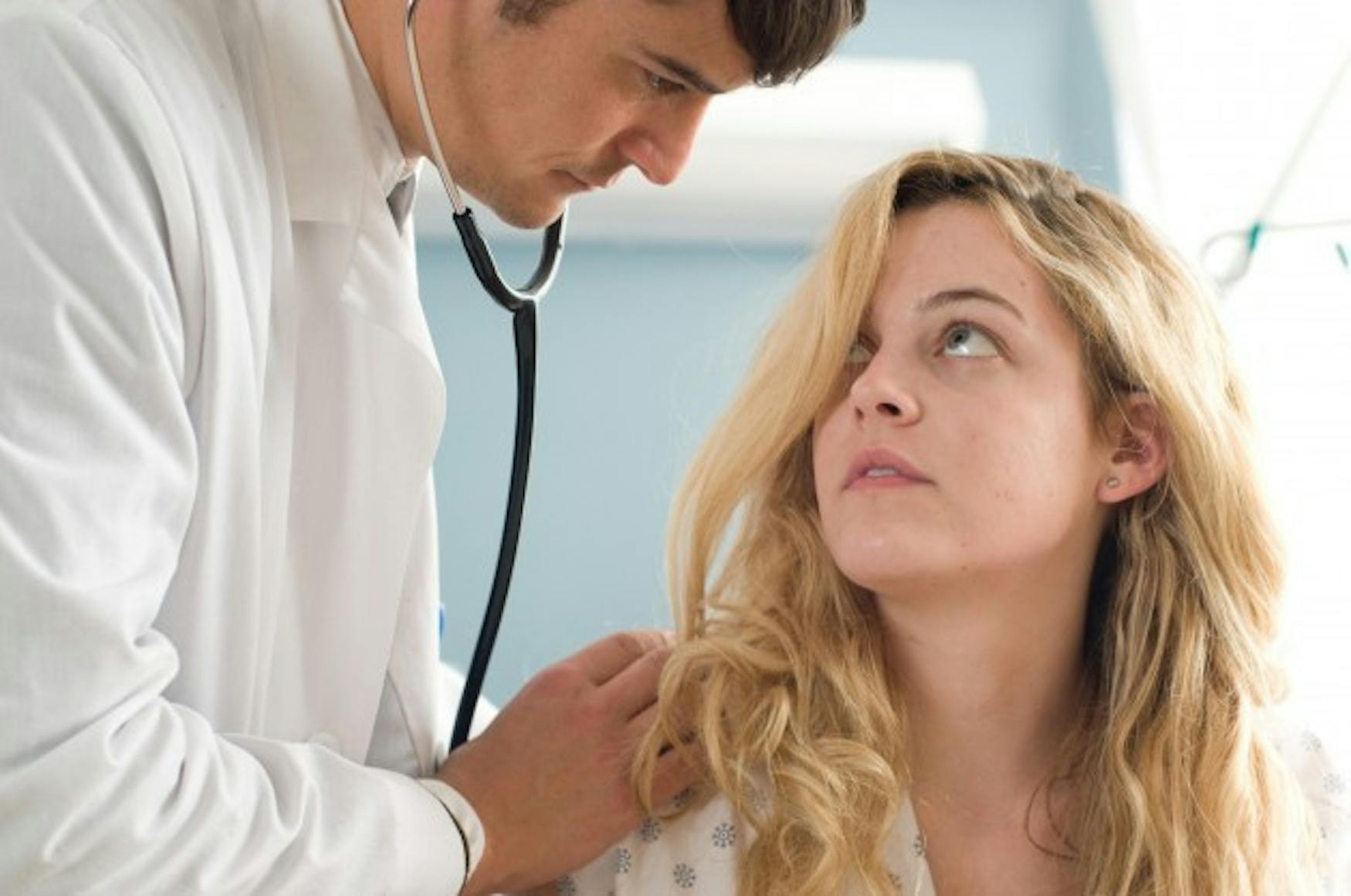Good Doctor' stages twisted love story
The camera zooms in on his hospital ID badge, pans slowly up his reclining body and focuses on the ever-present stethoscope of a doctor. For a moment, Dr. Martin Blake (Orlando Bloom) looks like he is the patient lying sick and vulnerable in a hospital bed. His face is pale, almost ghostlike against the white sheets, and his eyes are glazed over in a state of emptiness.
But he is the doctor. He is the one who so carefully balances life and death in his hands.
This is how we first see Blake in The Good Doctor, a 2011 Magnolia Pictures film that has finally been released on-demand and in theaters. The movie begins on the first day of Blake's residency in a southern California hospital. He is nervous and wants to prove himself to his coworkers.
He prescribes medication to one of his first patients, Diane Nixon (Riley Keough), an 18-year-old suffering from a kidney disorder, and releases her from the hospital with strict orders to finish her medicine. To thank him for saving his daughter, Nixon's father (Wade Williams) invites Blake over for dinner. But Blake's feelings have grown for Nixon since the last time he saw her, and this peek into her home life only feeds his interest.
Blake soon becomes obsessed with Nixon and when he visits her home again, he replaces her medication with sugar pills. She winds up in the hospital and Blake secretly continues to make her sicker, while at the same time developing a closer relationship with her.
One night, Nixon suddenly dies from heart failure and Blake is left an emotional wreck. However, Jimmy (Michael Pe?+/-a), an orderly, finds Nixon's diary and reads all about her relationship with Blake. The film's trajectory changes and we watch as Jimmy blackmails Blake into giving him prescription painkillers.
After watching The Good Doctor, I am torn. At its core, it is a demented and warped love story. It marks the invisible line where desire becomes obsession, leading to Blake's undeniably inhumane actions. In some ways, this works against the movie, as we are given no character to cling to throughout; we do not feel attached or responsible for anyone, not even the victims of Blake's cruelty.
Bloom's acting was outstanding, especially because it is so different than some of his typical roles. He achieves a certain level of "creepiness" yet does not alienate the viewer.
Keough's role was less memorable because she is in a hospital bed for most of the movie, but I feel like her role is less memorable and pronounced because it is not about her; she is a victim of Blake's actions and, therefore, fades into the background.
Bloom fully supports the movie on his own, and the other actors, especially Keough, bring more out of his character and enhance the story, exactly what supporting characters should do.
Pe?+/-a plays Jimmy as a dynamic and interesting supporting character. His role evolved as the movie progressed; he perfectly depicted the fun, lighthearted and joking orderly, but flawlessly transitioned into a deceiving character who took advantage of Blake's situation.
The Good Doctor is a foray into the abuse of power, especially when blinded by obsession. But the film reminds us that love is not infallible. Once Blake gets hold of Nixon's diary, he destroys it, just like he destroyed her. He moves on with his life and she is forgotten, a silent victim in the ongoing tragedies of love.



Please note All comments are eligible for publication in The Justice.